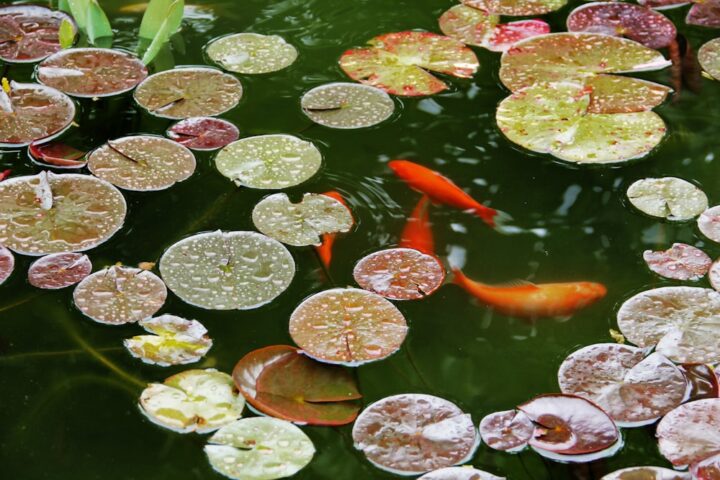Top 10 Game Fish Foods for Healthy Ponds
When owning a pond, it’s essential to consider the health and well-being of the fish that inhabit it. One aspect of maintaining their health is providing them with proper nutrition. This post will explore the top 10 game fish foods to keep your pond inhabitants healthy and happy.
Whether you’re a seasoned pond owner or just starting, this information will help you make informed choices when feeding your game fish.

1. Pellet Food: A Staple Diet
Pellet food is a popular option for feeding game fish in ponds. These floating pellets usually contain a balanced mix of protein, vitamins, and minerals tailored to the specific needs of fish. The advantage of game fish food for sale is its convenience; it floats on the water’s surface, making it easy for fish to locate and consume. Additionally, pellets maintain their shape for an extended period to minimize waste.
2. Live Food: Adding Variety
While pellets offer adequate nutrition for pond fish, incorporating live food into their diets can provide valuable variety and enrichment. Live feed such as worms, insects (like crickets), or small crustaceans offers a natural hunting experience for your game fish while allowing them to exhibit natural feeding behaviors such as chasing prey.
3. Freeze-Dried Treats: Tasty Delights
Another option to diversify your game fish’s diet is freeze-dried treats like krill or bloodworms. These delicacies are rich in proteins and highly sought after by many game fish species due to their appealing taste and texture. They even retain most of the nutrients in live feed while having a longer shelf life and avoiding the hassle of keeping live food.
4. Commercial Fish Feeders: Automated Feeding
Consider installing automatic commercial fish feeders in your pond to ensure your game fish receive regular daily meals without manual intervention. These devices dispense predetermined portions of pellet food at scheduled intervals, simulating natural feeding patterns. Fish quickly associate the sound of the feeder with mealtime, making feeding less stressful for them and giving them more time to enjoy your pond.
5. Organic Fish Food: A Natural Approach
There are commercially available organic fish foods for those prioritizing an organic approach in their pond management. These products use only naturally sourced ingredients consistent with organic farming practices, promising high-quality nutrition without synthetic additives or genetic modification.
6. Seasonal Feeding Considerations
The diet and feeding pattern of game fish can vary depending on the season. During non-breeding seasons, a maintenance feed with standard protein levels will suffice. However, during breeding periods, game fish require diets richer in protein to support growth and the reproductive process.
7. Specialized Food for Koi: Vibrant Colors
If you have vibrant koi fish in your pond, supplement their diet with specialized koi food that promotes health and color enhancement. These diets often contain natural color intensifiers such as spirulina algae or astaxanthin (a carotenoid pigment) to bring out the beautiful hues commonly seen in koi varieties.
8. Floating versus Sinking Pellets: Feed Options
When choosing pellet food for your game fish, consider whether floating or sinking pellets are more suitable for your pond environment and inhabitants. Floating pellets are easy to see and retrieve uneaten portions from the surface, helping maintain water cleanliness. Alternatively, sinking pellets cater to bottom-dwelling species that prefer feeding nearer to the pond’s floor.
9. Frequency and Portions: Consistency is Key
Regularly feeding game fish is essential for maintaining their health and appetite. Dividing the daily portion into several smaller meals prevents overfeeding while ensuring adequate nutritional intake for your fishy friends.
10. Consult an Expert: Individualized Recommendations
While these are general guidelines for feeding game fish in ponds, it’s essential to remember that individual ponds and their inhabitants may have unique requirements. If in doubt, consult with a pond expert or specialist who can provide personalized recommendations based on factors like fish species, pond size and conditions, population density, and water quality.
Conclusion
By following these top 10 tips for feeding your game fish pond, you’ll be providing a healthy, well-balanced diet that will enhance the well-being of your fish while enjoying the beauty and tranquility of your pond ecosystem. Remember to indulge in proper maintenance practices to ensure a thriving habitat for your precious underwater residents.


